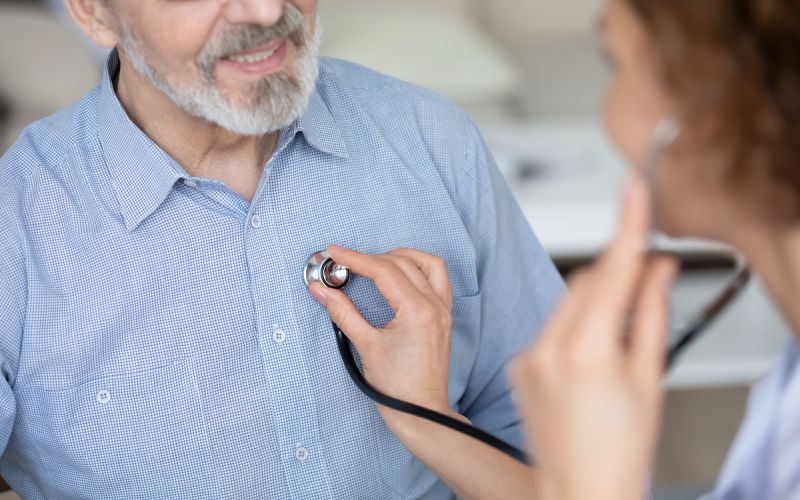After completing cancer treatment, some cancer survivors can be at an increased risk of developing heart problems. This often includes side effects such as irregular heartbeat (arrhythmia), high blood pressure, or even congestive heart failure. Other types of treatments that can either cause heart problems or make them worse include some chemotherapies, radiation therapy, targeted therapies and/or immunotherapies.
The good news is that not everyone who receives cancer treatment will develop heart problems. Risk for this side effect varies among survivor’s, impacted by factors such as the treatments they receive, as well as their risk for developing heart disease before, during and after cancer treatment. For instance, someone who already had heart problems prior to treatment would typically be more likely to develop new or worsening conditions than someone who didn't have heart conditions before treatment.
According to the American Society of Clinical Oncologists (ASCO), certain factors are associated with an increased risk of developing heart problems following cancer treatment:
- Having radiation therapy administered to the chest
- Receiving high doses of anthracycline in chemotherapy drugs. Some of these include daunorubicin (Cerubidine), doxorubicin (Adriamycin, Doxil), epirubicin (Ellence), idarubicin (Idamycin), and valrubicin (Valstar).
- Being female
- Age, specifically young children and those 60 and older
- Having a person history of high blood pressure, heart problems, tobacco use, obesity, or diabetes
Cancer researchers are studying techniques such as including echocardiography, electrocardiography, and biomarker monitoring that could help identify potential heart problems in survivors before symptoms even appear.
Cardiac Problems That Could Arise for Cancer Survivors
Cancer treatment can bring about several different heart-related issues. Because of this, it is important for all cancer survivors to receive checkups from their primary care physician to monitor blood pressure, heart rate, and overall cardiac health. Adding a reminder to your calendar is a good way to make sure you don’t forget about these necessary appointments. It’s also important that you call your doctor immediately or head to the ER if you experience symptoms such as chest or lung pain, a rapid heartbeat that won’t slow down, leg pain, or a hot spot in your leg which is a symptom of a blood clot.
Keep in mind that not all symptoms of heart problems are easily-identifiable. If you are experiencing any of the following, schedule an appointment with your doctor immediately:
- Fatigue
- Shortness of breath
- Dizziness or lightheadedness
- Swollen hands and/or feet
Since your cancer care team is familiar with your treatments, it’s a good idea to mention these symptoms to them as well. They may have insight into the types of side effects they see in cancer survivors.
Reducing Your Risk of Suffering Cardiac Side Effects After Cancer Treatment
Symptoms can appear at different times. In some cases, symptoms don’t appear until weeks, months, or even years have passed after cancer treatment. Regardless, it’s important to help your heart by:
- Incorporating at least 150 minutes of exercise per week into your schedule.
- Eating a balanced diet that limits too much sugar or processed foods.
- Quitting any smoking habits.
- Seeing your doctor regularly for checkups or as new side effects appear.





